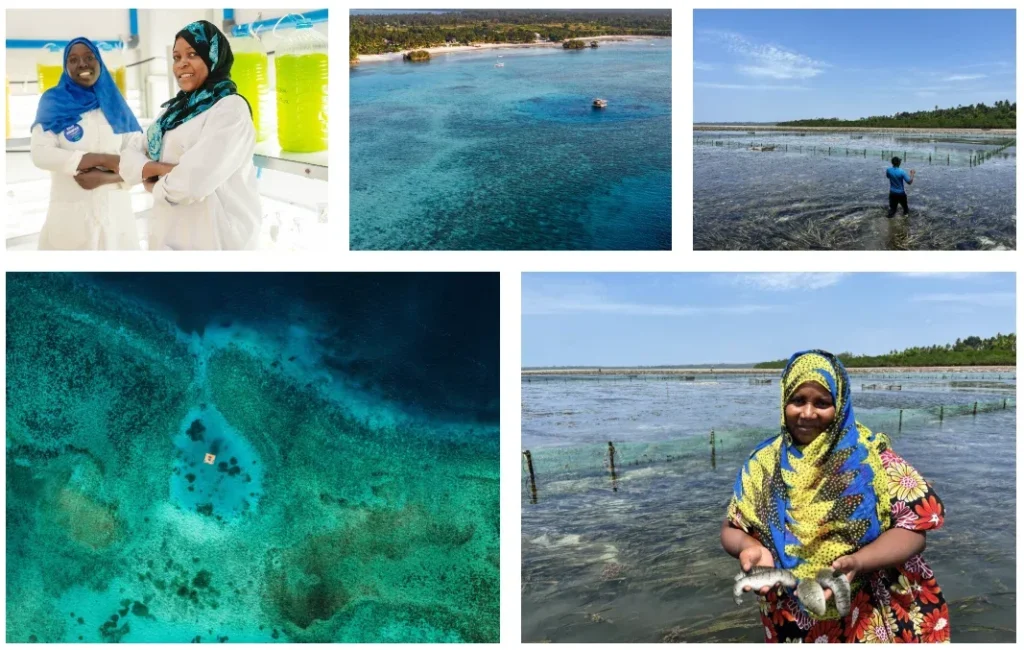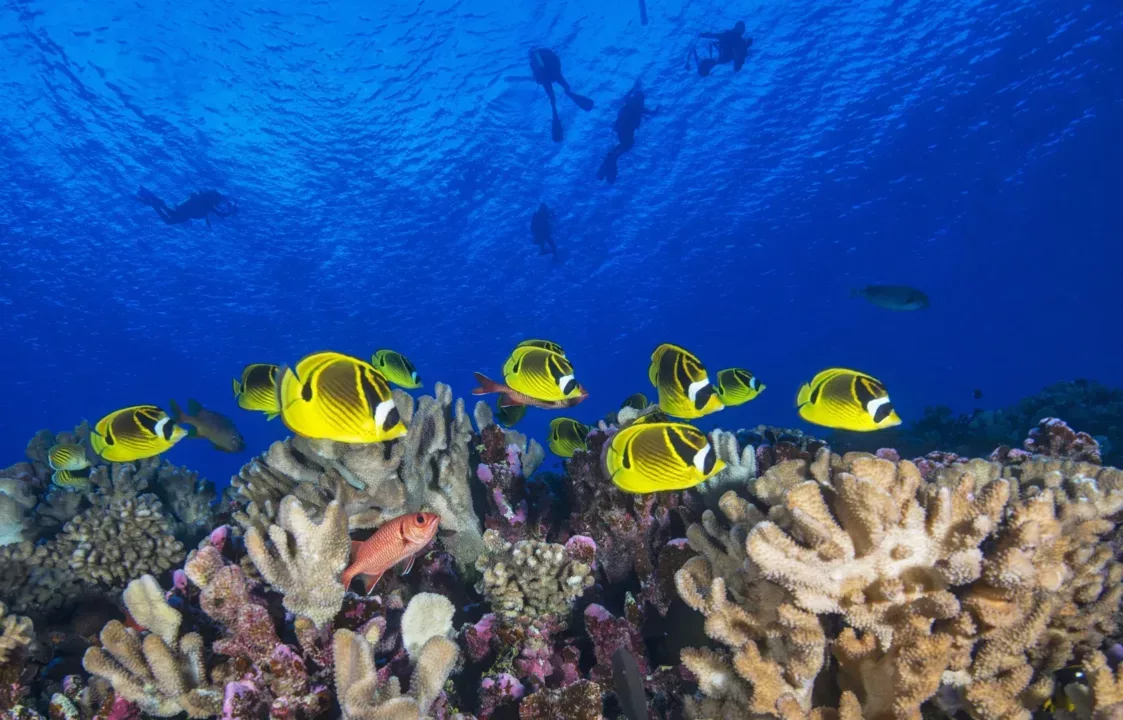ICRI member Blue Alliance, a non-profit focused on managing large Marine Protected Areas (MPAs), announces its first impact investments in the North Pemba Channel Conservation Area (PECCA), Zanzibar. These investments support two sustainable enterprises—community-based aquaculture and ecotourism—designed to create livelihoods, restore marine biodiversity, and support PECCA’s management.
This marks the first deployment of the Blue Finance impact loan facility, launched at COP16 in 2024 with BNP Paribas, providing financing to reef-positive businesses that contribute to conservation and the Blue Economy.
Transforming Marine Conservation through Sustainable Business Models in Pemba
Blue Alliance has developed a scalable conservation model ensuring PECCA is effectively managed and financed through sustainable reef-positive businesses (RPBs). The RPBs reduce specific drivers of coral reef ecosystem degradation, alleviate poverty and generate long-term income for PECCA. By fostering a conservation-led economy, revenue is generated while providing socio-economic and employment benefits. Community participation is key, ensuring that conservation efforts are effective, equitable, and enduring. Women, local coastal communities, and economically disadvantaged groups are prioritized through inclusive decision-making.
Two key investments in Pemba
Aquahub Zanzibar (Community-Based Aquaculture): A vertically integrated aquaculture business combining a sea cucumber hatchery and processing facilities with community-driven sea farming. Targeting global markets, this project enhances livelihoods for approximately 4,000 local households while regenerating seagrass ecosystems. Pilot farms have already benefited over 90 households, with plans for a commercial farm to scale production.
BlueWild EcoVentures Zanzibar (Ecotourism): This enterprise develops sustainable ocean-based tourism, creating employment and conservation awareness. It is enhancing Zanzibar’s unique underwater room with an improved design, offering an unparalleled marine wildlife experience in PECCA.
Both companies are owned by Blue Alliance and all their profits will be reinvested in managing PECCA, conserving 27,000 hectares of coral reef ecosystems, rebuilding fish stocks for 28,000 fisher households, protecting over 40 endangered marine species, and increasing climate resilience while supporting The Revolutionary Government of Zanzibar’s initiatives in ensuring the implementation of the Pemba Island Eco-Tourism and Sustainability Model.
The impact loans will be repaid through revenue from sea cucumber sales and visitor bookings, with interest rates linked to social and environmental performance. Impact will be measured using international standards for fish biodiversity regeneration, community livelihoods, gender equality, carbon emissions reduction, and MPA management effectiveness. Rigorous Environmental & Social Due Diligence (ESDD) assessments ensure risk mitigation.
Long-Term Commitment to Marine Protection
Blue Alliance has successfully implemented this model in Belize, where an MPA covering 280,000 hectares is now 60% self-financed through eco-tourism. With this investment in Pemba, Blue Alliance reinforces its commitment to leveraging the Blue Economy for large-scale marine conservation and economic resilience.


